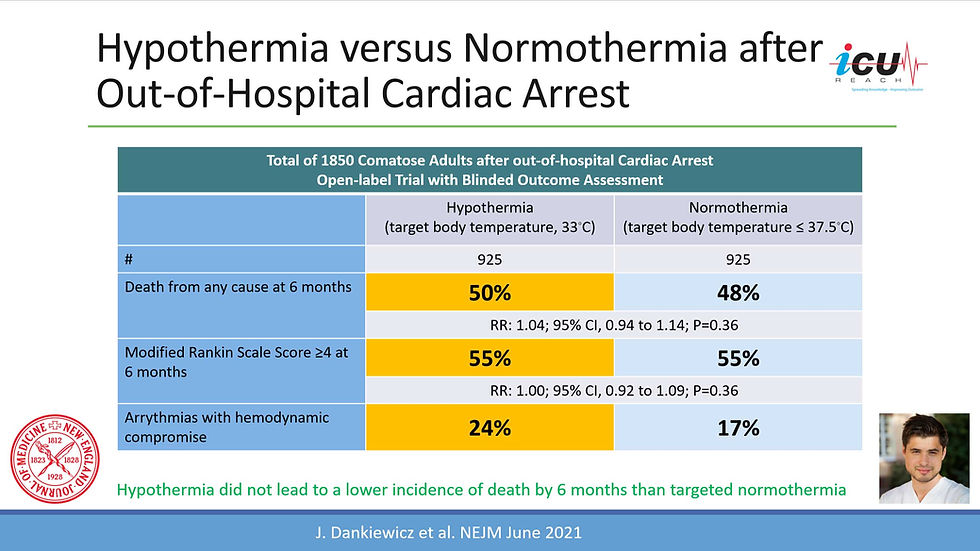Hypothermia or Normothermia after Out-of-Hospital Cardiac Arrest?
- Mazen Kherallah

- Jul 20, 2021
- 1 min read
Updated: Oct 7, 2022
A recent study in NEJM has shown that in patients with coma after out-of-hospital cardiac arrest, targeted hypothermia did not lead to a lower incidence of death by 6 months than targeted normothermia, what do you think?
The study was an open-label trial with blinded assessment of outcomes, they randomly assigned 1900 adults with coma who have had an out-of-hospital cardiac arrest of presumed cardiac or unknown cause to undergo targeted hypothermia at 33°C, followed by controlled rewarming, or targeted normothermia with early treatment of fever (body temperature, ≥37.8°C). The primary outcome was death from any cause at 6 months. Secondary outcomes included functional outcomes at 6 months was assessed with the modified Rankin scale.
At 6 months, 1850 were evaluated and the mortality was 50% in the hypothermia group compared to 48% in the normothermia group. Functional status was assessed in 1747 patients and 55% in the hypothermia group had a moderately severe disability or worse (modified Rankin scale score ≥4), as compared with 55% in the normothermia group

Outcomes were consistent among the subgroups: age, gender, initial cardiac rhythm, time to return of spontaneous circulation, and presence or absence of shock on admission. Arrhythmia resulting in hemodynamic compromise was more common in the hypothermia group than in the normothermia group (24% vs. 17%, P<0.001). The incidence of other adverse events did not differ significantly between the two groups.
Conclusion
In patients with coma after out-of-hospital cardiac arrest, targeted hypothermia did not lead to a lower incidence of death by 6 months than targeted normothermia.






Kaiser OTC benefits provide members with discounts on over-the-counter medications, vitamins, and health essentials, promoting better health management and cost-effective wellness solutions.
Obituaries near me help you find recent death notices, providing information about funeral services, memorials, and tributes for loved ones in your area.
is traveluro legit? Many users have had mixed experiences with the platform, so it's important to read reviews and verify deals before booking.